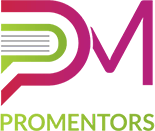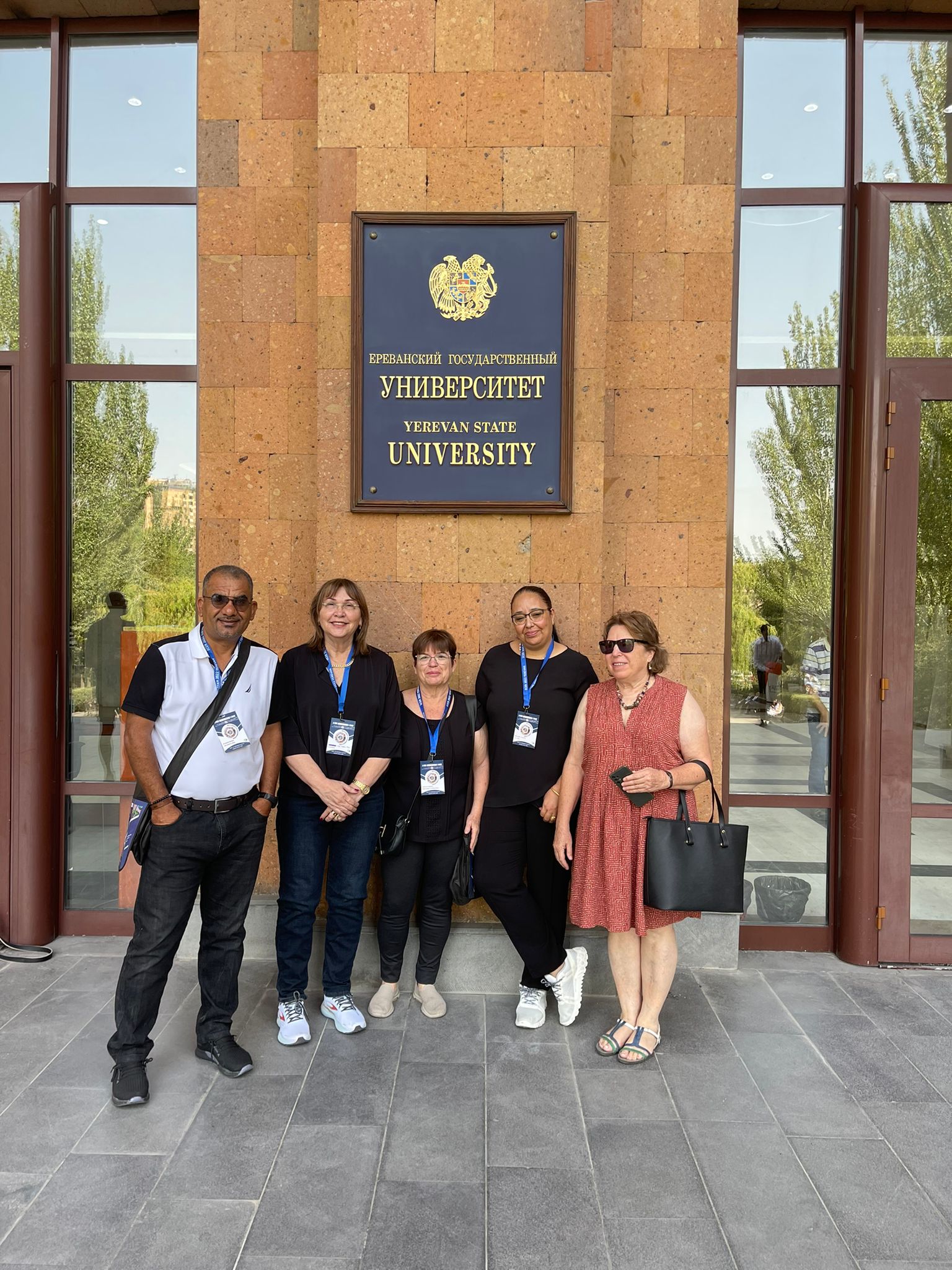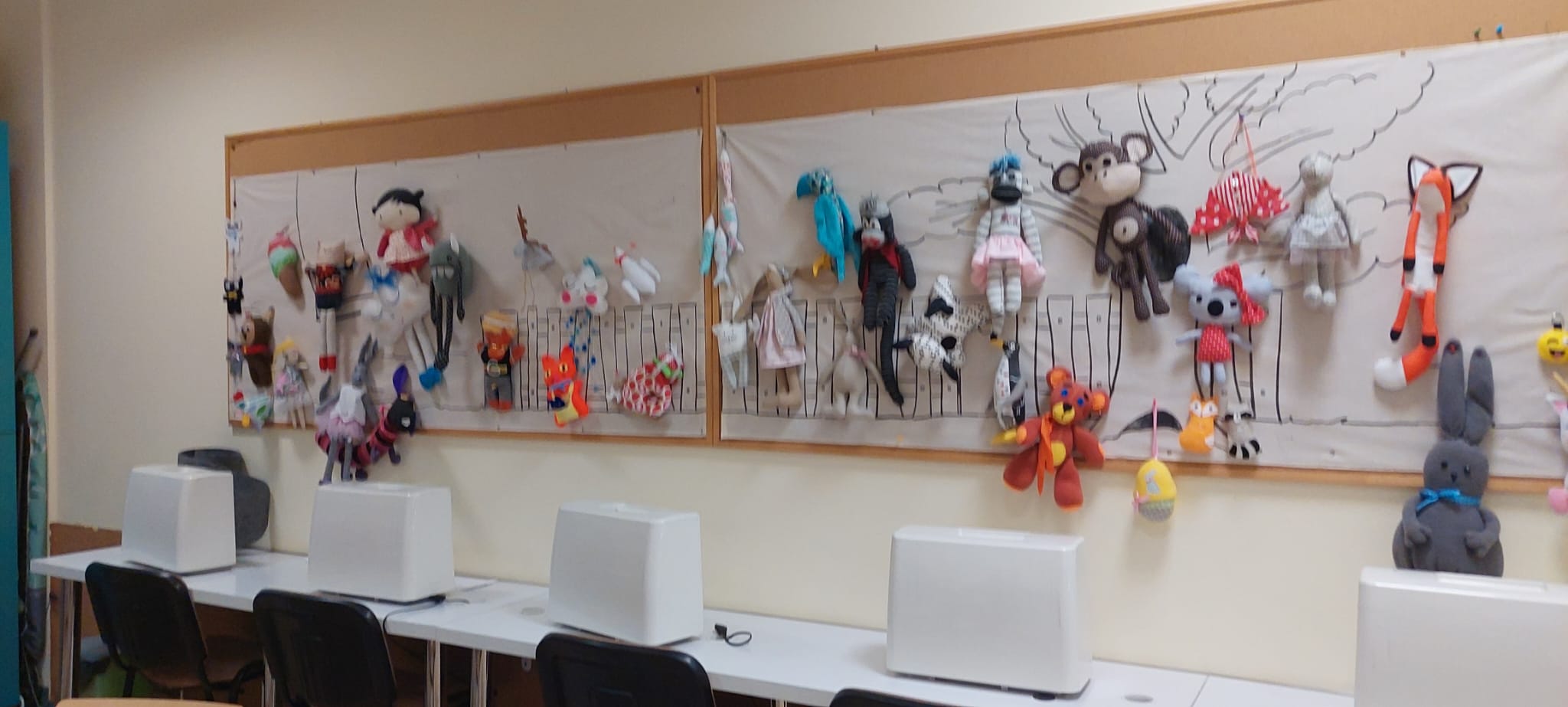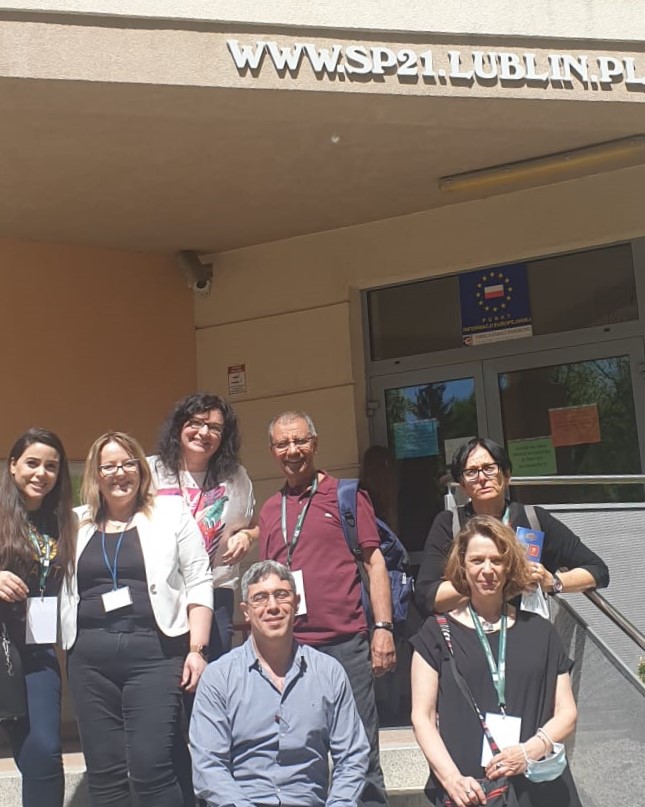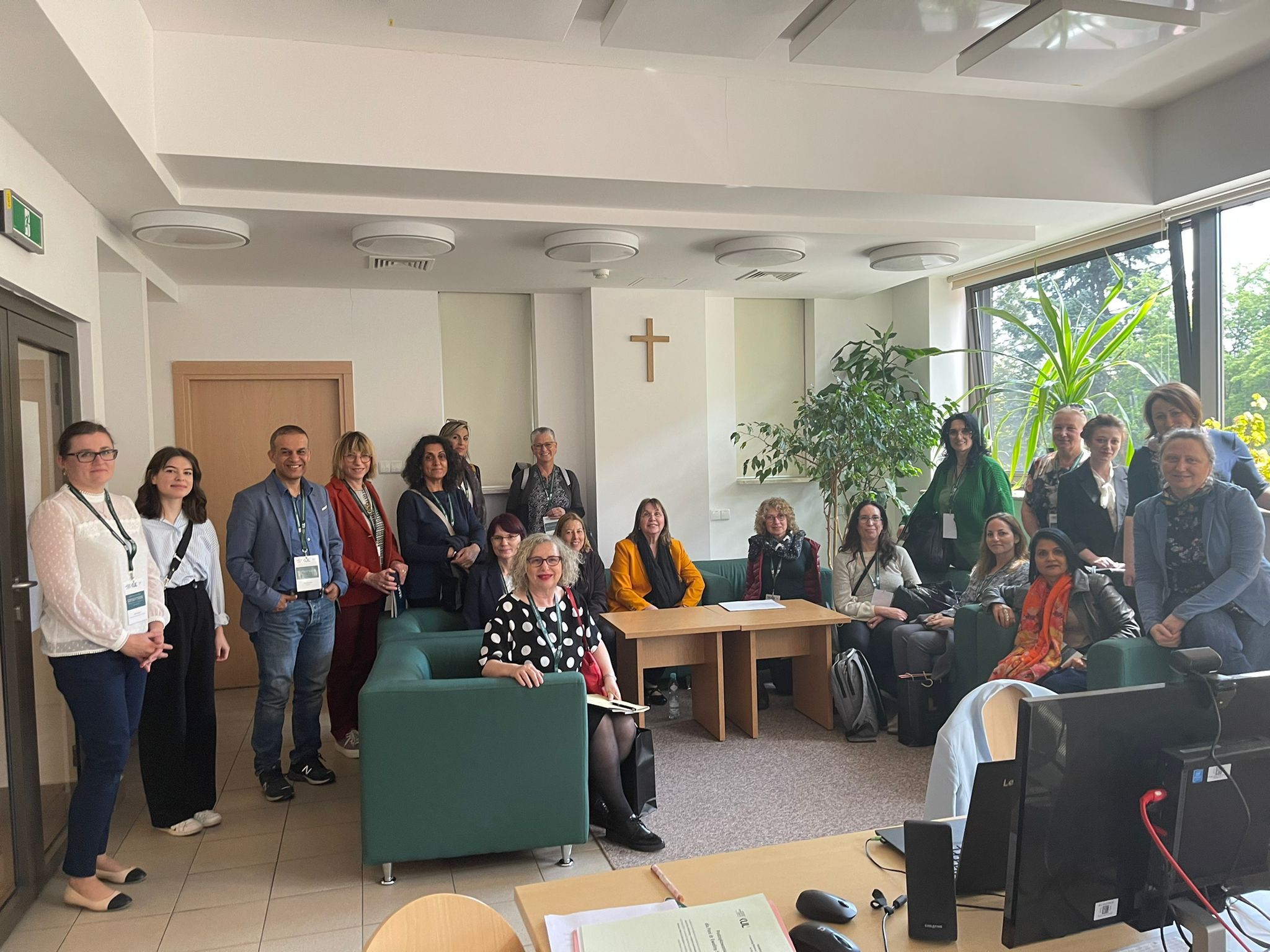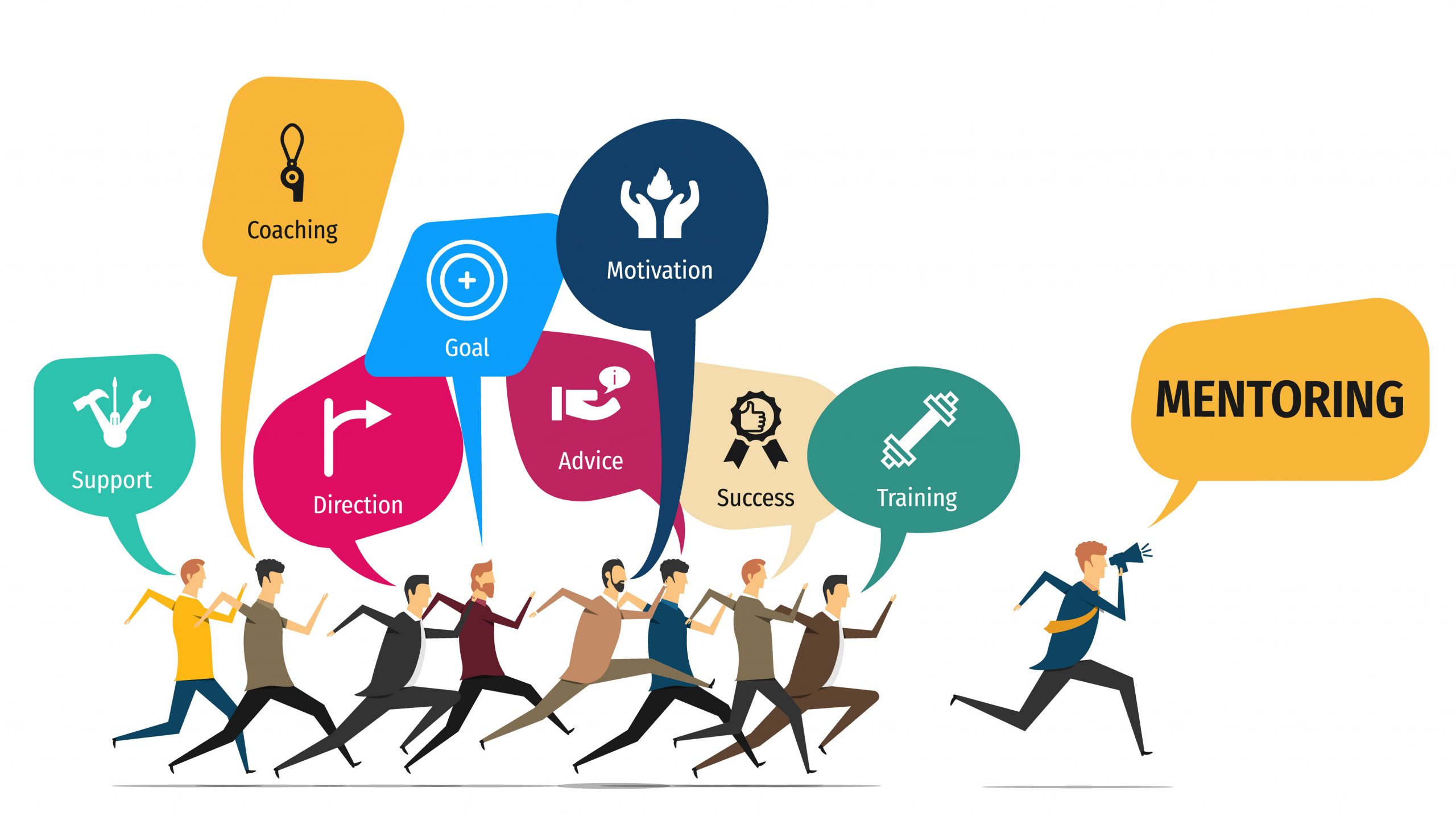Written by Prof. Alona Forkosh-Baruch, Levinsky College of Education
Edited by Tslil Farchi & reviewed by Marsha Hachmon
It all began more than 4 years ago, when I was asked to establish an international unit at Levinsky College of Education. Then, offers started pouring in. One of them was the Promentors project, that followed the Proteach project, which we weren’t a part of. I said YES to Promentors, without any doubt! Even though this was one of two ERASMUS+ projects we had launched that same year.
I was told that Promentors is aimed to develop a new paradigm for mentoring of interns and new teachers. Well, I myself was a new teacher about 30 years ago… but that more or less sums up my personal experience in the education system induction processes. I wasn’t even familiar with the terminology: interns, new teachers, accompanying teachers, mentors, etc. However I realized I have to be active on this project, since our college was new at this area, and we were going to be serious about it. Also, I had a debt to Reuma De-Groot, who knew me from before and counted on me to be involved.
Later, two of my dearest friends and colleagues, Tami Reuveni and Einat Bracha, patiently explained to me the whole concept of induction. I wasn’t aware of the different position holders involved, within the college and beyond. Just to name a few of them: municipal position holders, policymakers in the Ministry of Education, professional development centers, etc.
Prior to the beginning of the project, we had our first meeting. It was a total shock! I had no idea who these “strange people” were or what they were talking about. I understood that most of them had worked together in the Proteach project, and also were involved in induction units in their colleges. Hence, the vast majority of them were acquainted with one another. The aftershock was – well, I can’t describe this in words, but I was baffled. Luckily I had Tami, who explained to me the whole situation.
Later on came COVID, but we still had a wonderful kick-off meeting in Talpiot College. There I met our international partners from the UK (Karen & colleagues), Romania (Mihaela & colleagues), Poland (Ewa & colleagues) and Finland (Hannu & colleagues). It was then that I realized I was going to make it. That in spite of my initial and total ignorance about the major themes to be tackled by the project. Moreover, on one evening we had an informal tour and dinner, which convinced me that I was at home.
I had learned so much since that kickoff meeting in February 2020 – you can’t even imagine! First and foremost, I had the privilege to accompany mentor training, or should I say “mentoring growth processes” in the spirit of Promentors. It was an MIT in my hometown, Rishon LeZion, led by the wonderful Idit Porat, accompanied by Tzipi Babchik and Dan Misheiker. I was so happy to get to know them, and to benefit from their professionalism through Promentors.
This opportunity allowed me to look closely into the work done in the Department of Teacher Training in our college. I got to meet the people involved, some of them and their field of expertise are: Tami Reuveni – certification programs for pre-service teachers (retired and replaced by the wonderful Aviva Bar-Nir); Einat Bracha and Racheli Peled – support of interns and beginning teachers; Miri Posti – mentor training; Drorit Ram and Smadar Bar-Tal – support of MTeach students. Furthermore, this year we’ve included the Eilat MIT in Promentors, with the wonderful Daniela Menzim orchestrating this endeavor. So as you can see, my list of colleagues-friends in Levinsky college has become a very long one.
Not only the mentors benefit from this unique training, that allows them to create a community of practice with interns. Thanks to this project, I am also getting to experience the same process with colleagues from all institutes involved in Promentors. As a newbie in this field of expertise, I co-learn with crème de la crème of experts in mentoring of new teachers and induction processes – from Israel and abroad. I read their publications, heard them speak in national and international meetings, participated in workshops and also interacted with them informally.
This illustrated the models we try to implement, especially the community-based model. We are in fact a community of practice. And the peer-group mentoring model, which accompanies us in every encounter, was emphasized during the workshop in Jyväskylä, Finland. I’ve made so many friends through Promentors. Friendships beyond professional collaboration – you all know who you are, I’m truly grateful for all this.
So if you wonder what I have learned so far, and how has Promentors impacted my personal view on mentoring – Here are some thoughts…
- Mentoring is a complex notion, not a 1-way street: While there is a formal title of who is the mentor and who is the mentee – you are both a mentor and a mentee. It depends on many aspects, like the context or the field of knowledge. All you need as a mentor is to lower your ego. All you need as a mentee is autonomy to express your self-efficacy and confidence.
- Mentoring is a generic concept, yet culturally-socially associated: While mentoring is rooted in theoretical models, it has multiple meanings in different cultures and societies. For example, municipal MITs in Bedouin settlements may be different then MITs in central upper-class metropolitan areas. Therefore, when applying mentoring models, you need to know the society you are working within. Meaning it’s important to know how to adapt, revise or change existing models or frameworks according to the needs of the target population.
- DIY – mentoring should be tailored to specific needs and circumstances: Mentoring is not only differentiating by specific cultures, but also by specific circumstances, whether personal or systemic. Meaning mentoring should be dependent on prior knowledge and competencies of new teachers as well as of mentors. For example, there should be a certain approach to extrovert and self-confident new teachers\mentors; and a different one to introvert and shy new teachers\mentors. Hence, mentors and mentees need to be sensitive to one another, and apply the right mentoring style.
- Mentoring includes a professional as well as personal perspective: First and foremost, we are all human beings with feelings, dreams and professional aspirations. Although the professional aspect is a trigger for mentoring, personal aspect shouldn’t be overlooked. It should be attended with care. This is the way to build trust, which is the cornerstone to a prosperous community. Even professionally, everyone will benefit from respecting human resources.
- Free choice of mentor-mentee is necessary for successful mentoring: Currently, mentoring a new teacher is mandatory. Mentors are often chosen randomly, or according to their availability. Not according to their mentoring skills. This has to change. I believe mentors should be chosen in a meticulous manner, and mentees should be prepared to embrace the gift of mentoring. Moreover, mentors and mentees should be allowed to choose each other, according to their preferences. This is important because it’s a delicate relationship, which needs to be sustainable throughout a year, and possibly longer.
- Commitment for lifetime learning is a precondition for successful mentoring: Mentors and mentees need to understand that the learning and growing process as educators doesn’t end when the mandatory mentoring period ends. Rather, it’s a long-lasting effort to constantly improve oneself. It’s actually about changing one’s state of mind, according to which everyone has something to learn throughout their professional lifespan.
- All My Mentors: My take on life is that I can learn from everyone, and that includes EVERYONE!
And on personal note(s):
Note 1:
When I was a beginning teacher, I was also a research assistant in a project, headed by Professor Malka Margalit. In that time, I had been an instructor for teachers in a school, where I ended up teaching. This switch – from an instructor to a new teacher mentored by veteran teachers was natural to me. I cherished all the advice they gave me, and every challenge they put me through. This relationship is so dear to me. Just a couple of months ago, these (now retired) teachers, vice principals and principal invited me to their monthly café date, in honor of my academic degree. This principal took me into the school, where I worked for about 15 years. He told me: “having you was a win-win situation – I knew you wouldn’t stay as a teacher forever, but we all enjoyed the ride while it lasted”.
Note 2:
For about 25 years I’ve had the honor of having two academic mentors. They are still, to this day, the light of my professional life, and also mentors of my personal life. Both gave me the chance of my life to coordinate the Israeli component of an international IEA research initiative. They supervised my thesis and dissertation (not taking NO for an answer). And they have accompanied me since then in every junction in my life. Our dear administrative coordinator at the university told me again and again: “it’s a two-way street! they must have benefited as well”. I really hope so, because they truly deserve it!
